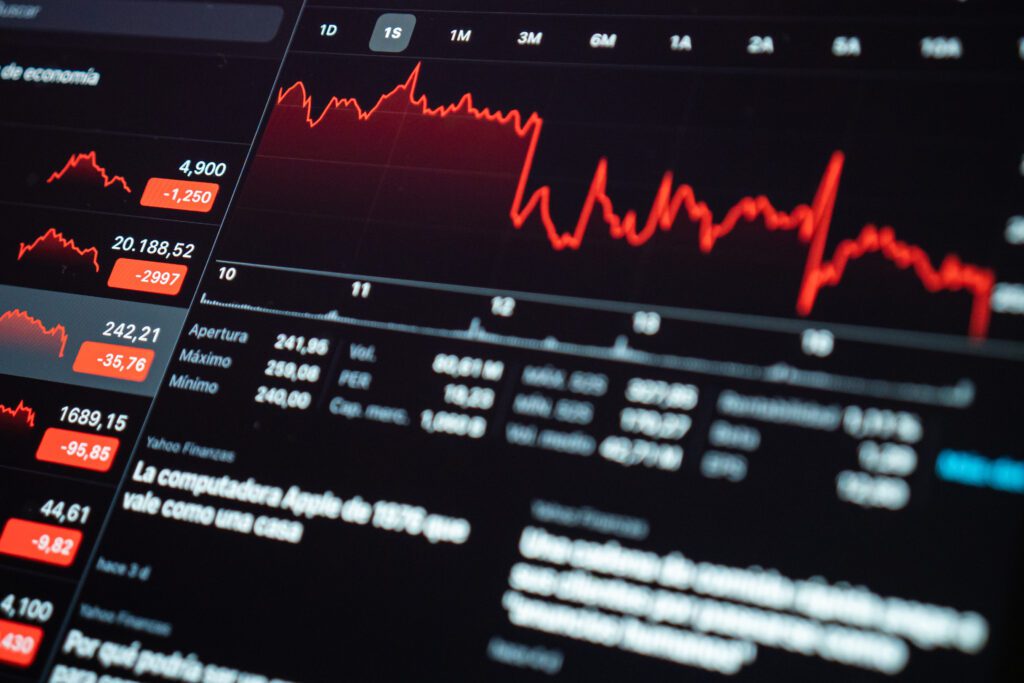Trump’s Tariffs: A Brewing Storm for Global Trade, Recession, and $2,300 iPhones
President Donald Trump’s sweeping tariff policies have ignited fears of a global trade war, sparking concerns about a potential recession and significant price hikes on everyday goods in the U.S. market. The penalties he announced have led to a plunge in global financial markets, and many world leaders are now grappling with the end of decades of trade liberalization.
The tariffs, introduced on Wednesday, have set the stage for intense global tensions, as countries around the world contemplate retaliatory measures. In Japan, one of America’s largest trading partners, Prime Minister Shigeru Ishiba decried the tariffs as creating a “national crisis.” The Japanese stock market experienced a severe blow, with banking shares plummeting, leaving Tokyo’s financial markets on track for their worst week in years.

In light of these developments, investment bank JPMorgan has revised its forecast, now predicting a 60% chance of a global recession by the end of the year, up from an earlier estimate of 40%. This shift in economic outlook has sent ripples of uncertainty across international markets. However, conflicting signals from the White House have left many guessing whether the tariffs are a long-term strategy or merely a negotiation tactic. President Trump, in a statement on Thursday, asserted that the tariffs give the U.S. “great power to negotiate,” a sentiment that has sparked debate about whether the punitive measures will remain in place or evolve over time.
If the tariffs remain, they could represent the highest trade barriers the U.S. has implemented in over a century. A 10% baseline tariff on all imports, alongside additional targeted duties on select countries, could drastically affect the price of numerous goods. For instance, projections from Rosenblatt Securities suggest that the price of a high-end iPhone could skyrocket to nearly $2,300 if Apple decides to pass the added costs onto consumers. Such a price increase would send shockwaves through the American consumer market, with products ranging from running shoes to cannabis potentially becoming much more expensive.
As businesses scramble to adjust, some are already making moves to cope with the uncertainty. Stellantis, a major automaker, announced it would temporarily lay off workers in the U.S. and close plants in Canada and Mexico. In contrast, General Motors is preparing to ramp up U.S. production to meet demand. The ripple effects of these tariffs have been felt across the corporate landscape, with global companies making difficult decisions to protect their bottom lines.
On the international stage, Canada’s Prime Minister Mark Carney remarked that the U.S. had abandoned its historic role as a leader in fostering international economic cooperation. “The global economy is fundamentally different today than it was yesterday,” Carney said, outlining a series of countermeasures to mitigate the damage.
China, in particular, has vowed retaliation, citing the 54% tariffs Trump imposed on its goods. The European Union has also raised alarms, with a proposed 20% tariff on U.S. imports, and French President Emmanuel Macron has called for a suspension of European investment in the United States. Other countries, including Japan, South Korea, Mexico, and India, have refrained from immediate retaliation but are waiting to see if they can extract concessions before making any decisive moves. Meanwhile, Britain’s foreign minister revealed that the UK is actively working to secure a new economic agreement with the U.S.
However, the economic repercussions of these tariffs extend beyond just trade partners. The IMF’s Managing Director, Kristalina Georgieva, warned that the tariffs pose a serious risk to the global economy, which is already struggling with sluggish growth. She urged the U.S. to work toward resolving trade tensions with its partners to reduce the growing uncertainty in global markets.
While Trump’s senior trade advisers, including Commerce Secretary Howard Lutnick and Peter Navarro, have insisted that the president is committed to not backing down on tariffs, Trump himself has offered a more nuanced take. He recently told reporters, “The tariffs give us great power to negotiate. Always have. I used it very well in the first administration, as you saw, but now we’re taking it to a whole new level.” These mixed signals only add to the confusion and uncertainty surrounding the future of U.S. trade policy.
The immediate consequences for global financial markets have been severe. Stocks around the world have taken a massive hit, with the Dow Jones Industrial Average plunging nearly 4%, marking its largest one-day drop since June 2020. The S&P 500 lost almost 5%, and the tech-heavy Nasdaq tumbled by nearly 6%, experiencing its worst day in percentage terms since the early days of the pandemic in March 2020.
American companies with substantial overseas operations have felt the brunt of the market sell-off. Shares of Nike saw a 14% drop, while Apple’s stock plunged by 9%. The pain continued into Friday, as Japan’s Nikkei Index faced its largest weekly drop in five years, led by sharp declines in the banking sector. Some of Japan’s largest lenders, holding significant global assets, were hit particularly hard. Meanwhile, Japanese bond yields sharply declined, as investors began to speculate that the Bank of Japan may be forced to reconsider its plans for future interest rate hikes.
In summary, the full consequences of President Trump’s tariffs are still unfolding. What began as a policy to assert U.S. power in trade negotiations has rapidly spiraled into a global economic crisis, with countries and businesses alike scrambling to understand how they will be affected. Whether these tariffs are a temporary bargaining chip or a sign of a new, more protectionist economic order remains to be seen. For now, the world waits as the U.S. and its trading partners navigate the potentially disastrous consequences of a trade war.

